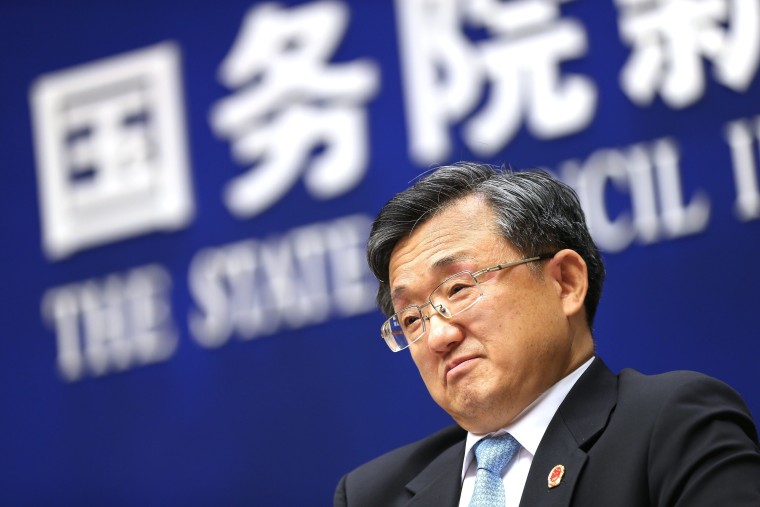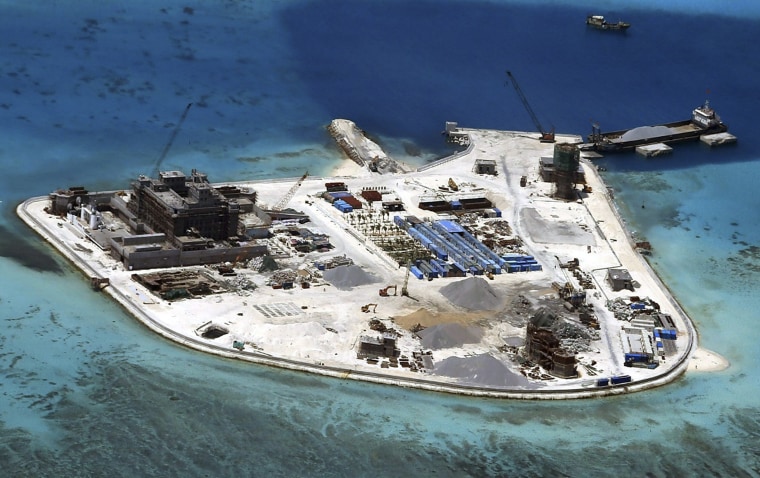China vowed Wednesday to protect its sovereignty over the South China Sea and said it had the right to set up an air defense zone, after rejecting an international tribunal's ruling that it has no claim to the energy-rich waters.
Beijing has repeatedly blamed the United States for stirring up trouble in the South China Sea, where its territorial claims overlap in parts with Vietnam, the Philippines, Malaysia, Brunei and Taiwan.
Chinese state media called the Permanent Court of Arbitration in the Hague a "puppet" of external forces after it ruled that China had breached the Philippines' sovereign rights by endangering its ships and fishing and oil projects.
Related: What's Next for China after South China Sea Scolding?
"China will take all necessary measures to protect its territorial sovereignty and maritime rights and interests," the ruling Communist Party's official People's Daily said in a front page commentary Wednesday.
The case, overseeing a region that is home to one of the world's busiest trade routes, has been seen as a test of China's rising power and its economic and strategic rivalry with the United States.

Beijing called the Philippines' claims of sovereignty in the South China Sea "baseless" and an "act of bad faith". In a government white paper published on Wednesday, China also said its fishing boats had been harassed and attacked by the Philippines around the disputed Spratly Islands.
"On whether China will set up an air defense zone over the South China Sea, what we have to make clear first is that China has the right to ... But whether we need one in the South China Sea depends on the level of threats we face," Vice Foreign Minister Liu Zhenmin told reporters in Beijing, adding that China hoped to return to bilateral talks with Manila.
"We hope that other countries don't use this opportunity to threaten China, and hope that other countries can work hard with China, meet us halfway, and maintain the South China Sea's peace and stability and not turn the South China Sea in a source of war."
U.S. officials have previously said they feared China may respond to the ruling by declaring an air defense identification zone in the South China Sea, as it did in the East China Sea in 2013, or by stepping up its building and fortification of artificial islands.
Beijing's ambassador to the United States earlier blamed the rise in tension in the region on the United States' recent "pivot" towards Asia. Cui Tiankai said the arbitration case "will probably open the door of abusing arbitration procedures.
Related: China Accused of 'Unsafe' Intercept of U.S. Spy Plane
"It will certainly undermine and weaken the motivation of states to engage in negotiations and consultations for solving their disputes," Cui said at a forum of the Center for Strategic and International Studies (CSIS) in Washington. "It will certainly intensify conflict and even confrontation."

President Barack Obama's top Asia policy adviser, Daniel Kritenbrink, said the United States had no interest in stirring tensions in the South China Sea as a pretext for involvement in the region.
"We have an enduring interest in seeing territorial and maritime disputes in the Asia Pacific, including in the South China Sea, resolved peacefully, without coercion and in a manner that is consistent with international law," Kritenbrink said at the same forum.